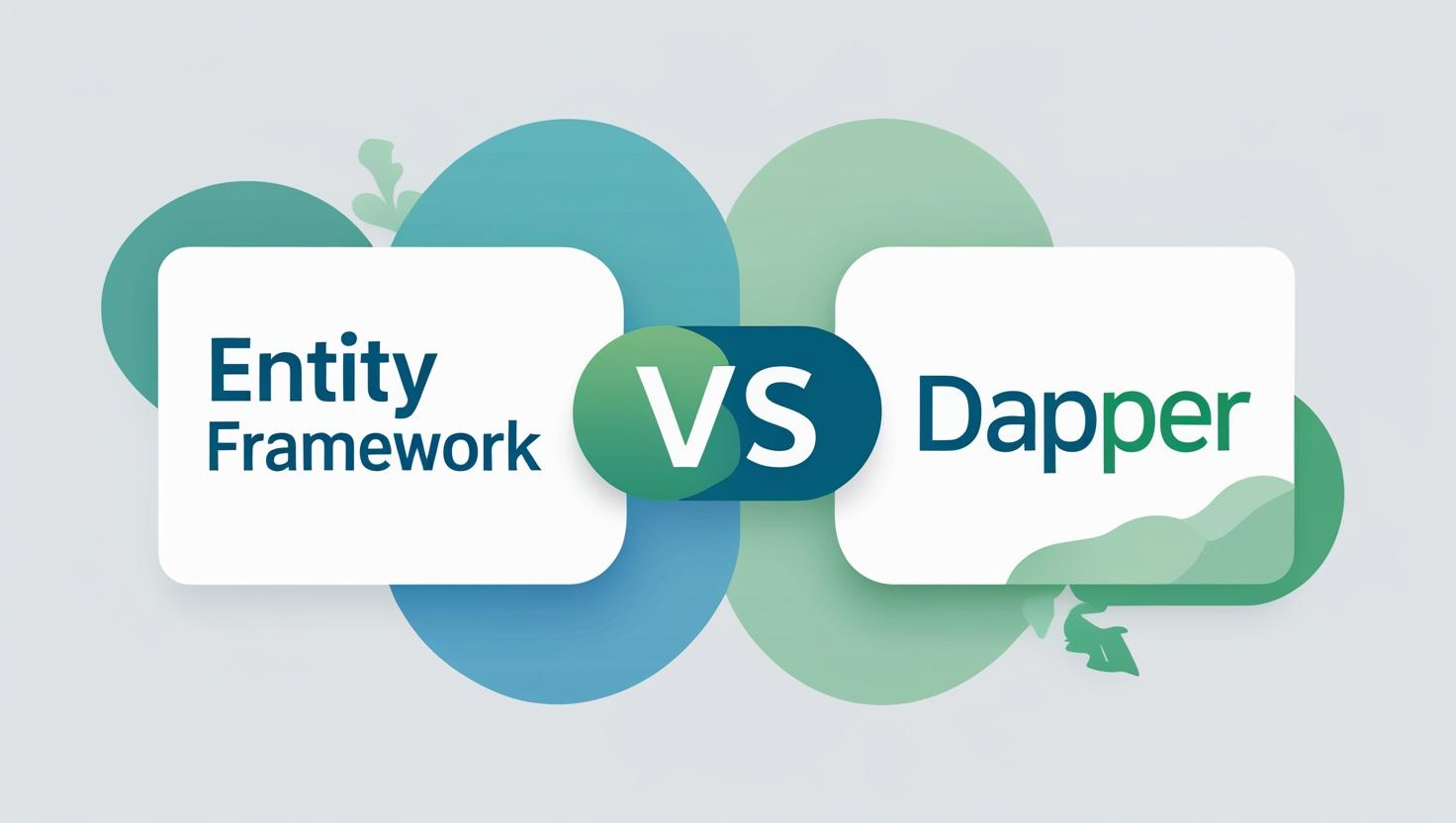Entity Framework vs. Dapper
Introduction
In the world of .NET development, two popular data access libraries, Entity Framework and Dapper, have gained significant traction. Both libraries simplify database interactions, but they differ in their approaches and cater to distinct use cases. In this blog, we will provide an in-depth comparison of Entity Framework and Dapper, helping developers make an informed decision on which one to choose based on their specific project requirements.
What is Entity Framework?
Entity Framework (EF) is an Object-Relational Mapping (ORM) framework developed by Microsoft. It enables developers to interact with relational databases using object-oriented programming, abstracting away the underlying SQL queries. EF offers a high-level abstraction, allowing developers to work with database entities as regular .NET objects.
Key Features of Entity Framework
- Code-First Approach:
EF supports Code-First development, where developers can define their domain models in C# classes and have the database schema generated automatically. - LINQ Integration:
EF seamlessly integrates with LINQ (Language-Integrated Query), making it easy to write expressive and type-safe queries. - Change Tracking:
EF tracks changes to objects and automatically generates SQL statements for database updates.
- Code-First Approach:
Advantages of Entity Framework
- Rapid Development:
EF’s Code-First approach accelerates development by reducing the need for writing manual SQL queries. - Abstraction from Database Details:
Developers can focus on business logic without worrying about low-level database interactions. - Rich Ecosystem:
Entity Framework has a large community and extensive documentation, making it well-supported and easy to find resources.
- Rapid Development:
What is Dapper?
Dapper is a lightweight and high-performance micro ORM developed by StackExchange. Unlike Entity Framework, Dapper follows a more low-level approach, providing developers with direct control over the SQL queries while still mapping the results to .NET objects.
Key Features of Dapper
- Micro ORM:
Dapper is designed to be lightweight and efficient, minimizing the overhead associated with full-fledged ORMs. - High Performance:
Due to its minimal abstraction, Dapper is faster than most other ORMs, making it an excellent choice for performance-critical applications. - Raw SQL Support:
Developers can write and execute raw SQL queries with Dapper, giving them precise control over database operations.
- Micro ORM:
Advantages of Dapper
- Performance:
Dapper’s direct mapping of SQL queries to objects results in faster execution times compared to higher-level ORMs like Entity Framework. - Control Over Queries:
Developers have the freedom to write complex SQL queries or stored procedures and use Dapper to map the results to objects. - Minimal Learning Curve:
Dapper’s simplicity makes it easy to understand and use, particularly for developers familiar with SQL.
- Performance:
Use Cases and Scenarios
When to Use Entity Framework
- Rapid Prototyping:
For quick application development or prototyping, Entity Framework’s Code-First approach can significantly speed up the process. - Enterprise Applications:
In large-scale enterprise applications where a high-level abstraction is beneficial for maintaining the code base, Entity Framework is often the preferred choice.
- Rapid Prototyping:
When to Use Dapper
- Performance:
Critical Applications: For applications that require maximum performance and efficiency, such as high-traffic web services or data-intensive applications, Dapper’s lower overhead is advantageous. - Complex Queries:
Dapper excels when handling complex SQL queries or scenarios where full control over database interactions is necessary.
- Performance:
Conclusion
In conclusion, both Entity Framework and Dapper have their unique strengths, and the choice between them depends on the specific needs of the project. Entity Framework offers a high-level abstraction, making it ideal for rapid development and maintaining a clean codebase in enterprise applications. On the other hand, Dapper’s minimal overhead and performance gains make it an excellent choice for performance-critical applications and scenarios where direct control over SQL queries is crucial.
Ultimately, developers should consider factors like performance requirements, the complexity of database interactions, and their team’s familiarity with ORM tools to determine which library best suits their project. By understanding the capabilities and differences between Entity Framework and Dapper, developers can make an informed decision that aligns with their project goals and ensures efficient data access in their .NET applications.

